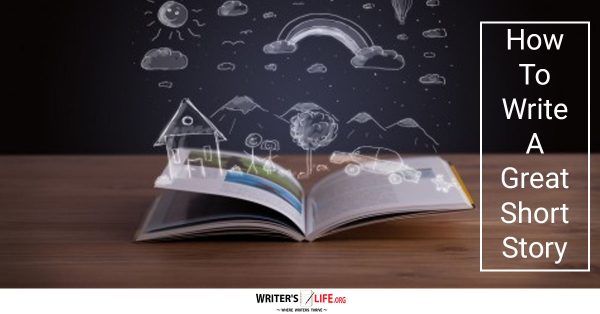- How To Tackle Jealousy In Creative Writing
- Common Submission Mistakes
- How To Stop Your Blog Becoming Boring
- The One Thing Every Successful Writer Has In Common
- How To Make Yourself Aware Of Publishing Scams
- Why Almost ALL Writers Make These Grammar Mistakes At Some Point
- 5 Tips For Authors On How To Deal With Rejection
- Top Mistakes to Avoid When Writing a Novel
- How to Avoid Common New Writer Mistakes
- 10 Mistakes New Fiction Writers Make
How to Write A Great Short Story

Writing a short story is very different to writing a novel - in some ways, and in some ways, it is very similar!
Naturally, they both need a beginning, middle and an end, relatable characters and an intriguing premise. However, when it comes to short story writing, you have to be able to deliver all this in a much shorter word count. Where with a novel you can spend time allowing your reader to get to know your characters, to build up tension and suspense and let the story unravel bit by bit, a short story must get your readers hooked from the word go.
So what are the key ingredients to writing a great short story? Let’s take a look.
Get the story down
When it comes to writing short stories, if you can, it’s best to try to write it all down in one sitting. To do this, you need to be able to block out a significant chunk of time. You also need to be able to control that inner critic that wants to stop and scrutinise your work every few sentences and makes you want to try to perfect them. Initially just get the words on the paper, you can go back and polish and edit and add and change things, but if you can write your whole story out without being interrupted, it will be so much easier to work on it then if you stop and start. Think about it, someone reads a novel over several days/ weeks/ months but would usually read a short story all at once - so you should be able to write it in one go as well.
Reveal your protagonist
Arguably, a short story needs an interesting protagonist more that in any other form. Your protagonist needs to be someone who your readers can get to know almost straight away. You cannot waste any time with this. Tell your reader who they are, what they want, why they want it, and why readers should care if they get it - do this right away so they are already immediately involved in the story, and care about the fate of its characters.
Open with a bang
The first line of your story is its hook - make it count. If you can make your first few sentences so compelling and intriguing that your reader cannot help but continue then, you have succeeded. Surprise them, set the scene, invite your reader into the story and let them know what's going on from the very start.
Do your research
Some writers think that a short story requires no research. However, if you want to make it believable and authentic, then you should take the time to do your research, however, long or short your story is. A well-researched story adds depth and layers to it that those who aren’t researched simply cannot have.
Edit, edit, edit
As with any piece of creative writing, attention to detail is imperative. Make sure you set aside a proper amount of time for editing, and do so as thoroughly as if you were editing your novel.
Get it out there
Short story writing can be incredibly rewarding and fulfilling. Once you have finished your short story, make sure you get it out there into the world. Whether that is posting it on your blog, sending it off to a magazine or creating a short story collection to be published, make sure you do something with it - you never know where it might take you!

Bethany Cadman -author of 'Doctor Vanilla's Sunflowers'


























